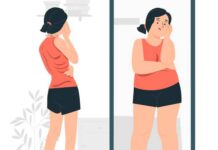Affiliate Disclaimer
Some links in this article are affiliate links. We may earn a small commission if you make a purchase through these links, at no extra cost to you. We only recommend products we find useful to our readersMental health and the struggles surrounding it are so less talked about that we often fail to recognize the internal struggles that we ourselves are going through. According to the National Association of Anorexia Nervosa and Associated Disorders, at least 30 million people across the United States itself suffer from eating disorders. Given the severity, it is not surprising that the timely treatment for eating disorder is very important.
According to a research (R), it is believed that at least one person is dying every 62 minutes because of eating disorder making this one of the mental health issues resulting in the maximum mortality rate across the world. It is important to recognize the symptoms and take immediate steps to fight through.
By the end of this article, you will have most of the details there is to know about the causes, symptoms and the treatments for overcoming an eating disorder.
What Is An Eating Disorder?

Eating disorder is a categorized type of mental health disorder which is characterized by irregular eating patterns throughout the day following by constant distress over one’s body morphology.
Majority of the people have this notion that eating disorder is only when one consumes less food or no food, for that matter. That is not technically just the case. Any kind of drastic changes to one’s overall eating habits and routine does have the possibility to end up causing negative impacts on one’s overall well being.
There is no age bar for when one might suffer from an eating disorder, but the condition is often witnessed in the people who are in their teenage or are young adults. Owing to the constant flashing of the “perfect” social media life and the peer pressure around, the condition is most likely to develop in such individuals.
What are the Types of Eating Disorders?
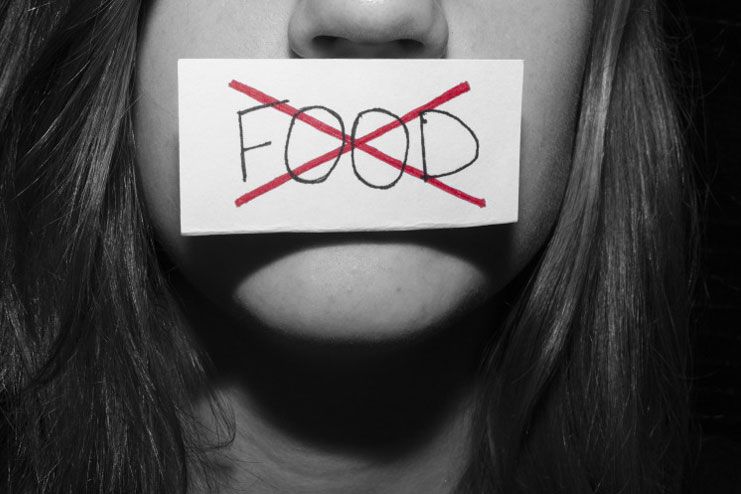
With the basic knowledge and overview about the condition, it is type we divert our focus on the types of eating disorders and what they entail.
There are predominantly three different types of eating disorder, which include:
Anorexia Nervosa

People suffering from Anorexia Nervosa tend to be very conscious about their body weight, thinking they are overweight, even if they very well could be stick thin.
Additionally, they also tend to have an obsessive fear of gaining weight very rapidly and also suffer from body dysphoria. Majority of the people suffering from Anorexia nervosa tend to drastically limit their consumption of food and tend to think they are overweight even though, in reality, they are underweight.
The condition, if not tended to on time, does have the capability to affect one’s health and well being for the worse. It tends to have damaging impacts on the brain, heart health and even on your bones and the general functioning of the body.
Bulimia Nervosa

Next on the list of types of eating disorder is bulimia nervosa. This condition, unlike the Anorexia Nervosa is a bit different. Unlike the prior one where the patient simply puts a halt on their natural eating routines, people suffering from Bulimia Nervosa tend to binge eat a lot of food at one go and then follow the same up with something to compensate for the overeating.
The “compensation” could either be in the form of forced vomiting, extensive exercise or even with the extreme use of laxative to get rid of the consumed food. Often times, the cycle of binge eating followed by purging is done in isolation to conceal the feelings of guilt and dread.
Much like Anorexia Nervosa, the patients suffering from this condition also tend to have issues with their body weight and struggle being happy with the weight and shape.
The constant cycle of eating and purging or even extensive exercises and laxatives do tend to have negative implications on one’s health causing gastrointestinal problems, affected heart health and even dehydration and electrolyte imbalance.
Binge Eating Disorder

As we did mention before, eating disorders are not just the condition in which people eat less or not eat or compensate for the overeating. There is a type of eating disorder in which the person affected tends to overeat and binge eats throughout the day without thinking about compensating for the same.
This is the primary reason why the people suffering from Binge eating disorder tend to be on a high risk of being obese which further leads to additional health complications.
People suffering from this condition tend to not just struggle with the risks of certain diseases, they are also often struggling with a constant feeling of guilt, distress and embarrassment which leads to the progression of the disorder even more so.
What Are The Causes Of An Eating Disorder?
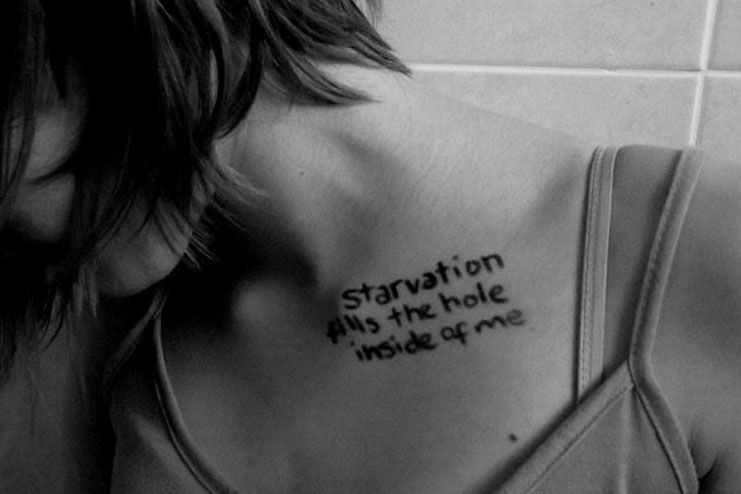
Coming on to the causes behind an eating disorder, the same can be categorized based on a number of conditions, be it environmental, psychological or even physical.
In order to help you understand better, we are going to walk you through some of the causes of this condition in a tabular form.
| Biological factors | Psychological factors | Environmental factors |
| Irregular hormone function | Negative body image | Problems in the family |
| Possible influence of genetics | Lack of self esteem and confidence | Professions that promote staying thin |
| Nutritional deficiencies in the body | Some sports like rowing, diving, gymnastics etc. | |
| Family or childhood trauma | ||
| Peer pressure | ||
| Stressful changes in one’s life | ||
What Are The Symptoms Of An Eating Disorder?

Now with the causes aside, it is time we divert our focus on the possible symptoms of the condition and how important they are in the process of diagnosis extensively.
Some of the symptoms of suffering from an eating disorder include:
- Not eating enough food and being on a chronic diet even being underweight
- Constant fluctuations in one’s weight
- Having one’s ritualistic eating patterns like eating in isolation or eating by cutting the food into small pieces
- Being obsessed with the amount of calories that one consumes
- Being depressed or in a constant stage of weakness and lethargy
- Struggling with body image issues constantly
- Lacking the necessary nutrition that the body needs to function
- Induction of risks of serious health issues and diseases
- Switching between periods of fasting and then overeating
How To Diagnose An Eating Disorder?

When it comes to the process of diagnosis for the eating disorder treatment, the process is completely dependent on the symptoms that they are showcasing.
For the most part, an eating disorder is predominantly diagnosed based on the signs, symptoms and the struggles that the patient is going through.
When you reach out to a doctor with the problems, chances are that they are going to run some physical examinations and even conduct some psychological evaluation to get a better picture of the condition altogether.
Additionally, the doctors tend to suggest some of the accessory tests to be conducted to confirm the same completely without any further issues whatsoever.
How To Overcome Eating Disorder?

The treatment for eating disorder is quite important to adhere to. Given the kind of consequences it brings on, it is not at all surprising that overcoming an eating disorder does take up quite a lot of time and effort.
In order to get the best treatment for eating disorders, we are going to suggest some amazing ways in which one can overcome the condition and fight it through.
We understand that it easier told than done but these ways that we are about to mention are actually quite helpful in your path of recovery.
1. Stop Beating Yourself Up Through and Through

Pointing everything out about yourself is not going to do you any good at all. Being self critical about yourself and your choices are most likely going to contribute more towards your stake of eating disorders, making the condition worse.
It is easy for someone to say to not be critical about yourself but when it comes down to the ones suffering from the condition, chances are that the process isn’t technically going to be that easy to adhere to.
Picking out every last thing about yourself isn’t going to help in the process of recovery, rather, do the complete opposite of that. In order to help get over your eating disorder, it is important that you start taking yourself more confidently and stop picking apart every last detail about yourself.
2. Tell one Person
 The main thing about eating disorder is the fact that people fail to acknowledge that they have a problem. This is where the problem arises.
The main thing about eating disorder is the fact that people fail to acknowledge that they have a problem. This is where the problem arises.
You won’t realize this but the best treatment for an eating disorder is by not just acknowledging the problem but also relaying the same to at least one person.
It could be anyone – from your friends to your family. Just make sure that you don’t get stuck in the period of isolation around that will end up taking away the freedom from your own rundown of thoughts.
Sharing your struggles with at least one person in the beginning who will listen to you does help a lot in getting everything through. You will actually find it easier to cope with, someone to rely on in times of distress and even reach out to someone when you find yourself stuck in an irreversible condition.
3. Accept and Understand Yourself
 None of the patients suffering from an eating disorder have been able to fight through the condition without accepting it altogether. Suffering through an eating disorder is nothing short of a train wreck.
None of the patients suffering from an eating disorder have been able to fight through the condition without accepting it altogether. Suffering through an eating disorder is nothing short of a train wreck.
When you actually do end up accepting yourself that you have an eating disorder, it does become a lot easier for you to handle the condition better and fight through the problems and know your triggers that’s making the situation worse for you.
The main impact of self-acceptance in the eating disorder treatment is the fact that the same helps make things more transparent, especially when it comes down to the prospects of understanding your weaknesses as well as the ways in which you can combat the same.
Acceptance also helps you finally realize the need for professional assistance that you possibly didn’t know about otherwise.
4. Stop with the Beliefs of Self Recovery
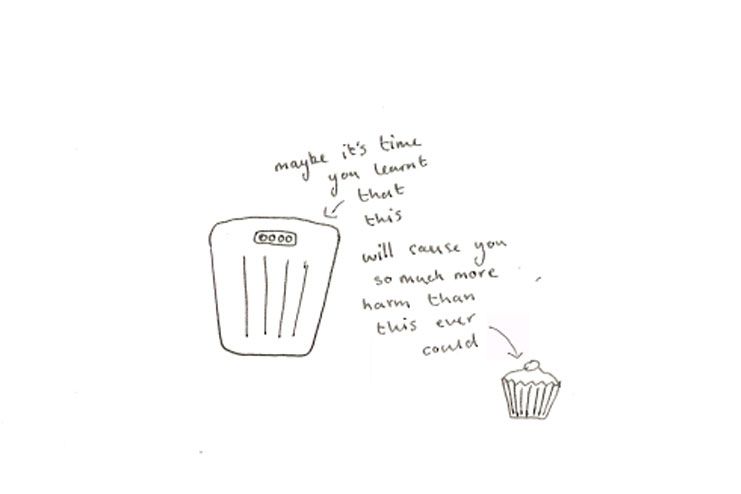
The process of recovery is never easy and there will be setbacks and obstacles that make the process harder to tackle through. But, that doesn’t necessary mean that you can hone everything and every single step through the way on your own.
That is definitely not how it works, especially if it is one of the major mental health issues like that of an eating disorder. You might not realize this but self recovery without any form of professional guidance is a formulation for disaster. In order to fight through, it is very important that you understand the severity of the condition and reach out to a therapist who knows what they are doing.
Once you have a perspective with a proper medical approach, it does become a lot easier for you to fight through the process and if required, you can even get access to self help books following that to further help you through the process of recovery even more so.
5. Consume Breakfast Daily
 This is predominantly one of the most important factors to keep into consideration for the people who suffer from Binge Eating Disorder. Given the fact that they are more prone to temptations, the best way to fight that out is by ensuring that you consume a healthy and nutritious breakfast on a daily basis.
This is predominantly one of the most important factors to keep into consideration for the people who suffer from Binge Eating Disorder. Given the fact that they are more prone to temptations, the best way to fight that out is by ensuring that you consume a healthy and nutritious breakfast on a daily basis.
Including a high protein and high fiber breakfast helps ensure that you not just get all the nutrients in but you also rest assured to keep yourself satiated for an extended period of time, thus reducing the temptations even more so.
Even studies have found that people who tend to skip out on their breakfast are more likely to binge eat and consume unnecessary amount of calories throughout the day.
6. Enroll in an Eating Disorder Program

While your acceptance about the situation can bring about drastic impacts on the treatment of eating disorders, it is not the only factor involved.
All that being said, it is quite important to know for a fact that seeing people sailing on the same boat as you can be of a lot of help when it comes to managing your condition of the eating disorder.
Meeting people who are struggling with the same problem as you and getting to know their story is a lot helpful in understanding how you can handle things in a much better way.
Being part of the therapy sessions act as an amazing channel for helping you survive through the process of struggles that you have been struggling all along with. Not just that, it also provides with a much required healthy outlet for you to channel out your issues and hardships that you are going through.
7. Stop Believing you Aren’t Worth the Hassle

As serious the condition of the eating disorder is, the treatment for an eating disorder doesn’t come cheap. This is one of the primary reasons why people suffering from this condition tend to shy away from getting professional help – not just because they think they don’t have the capability of supporting the treatment procedure but because of the fact that many tend to think that they aren’t worth the amount the process will cost.
This stems from the lack of self-esteem and self image issues that the patients struggle with. One of the most important factors about the treatment for eating disorder is for you to realize that every single person deserves a fair chance to recovery and you do too.
On the other hand, if the money and the financial investment in the treatment is the primary issue, try and communicate that to your healthcare provider and they can look out for options that come in within your budget itself.
8. Rely on Supplements for Nutrition
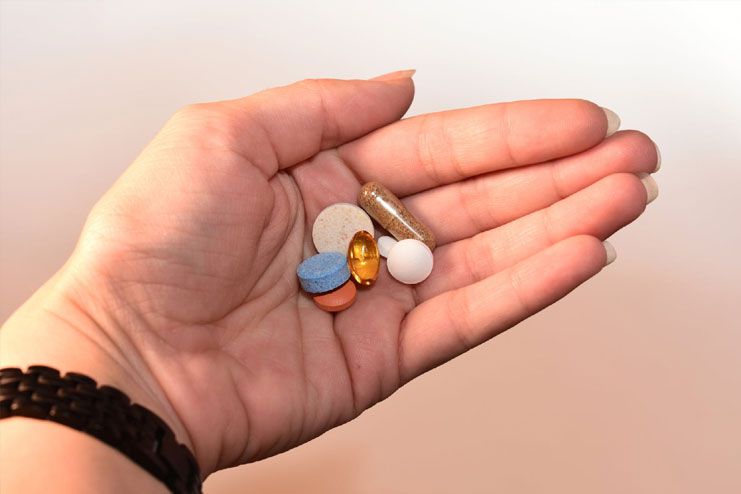 Given the length of the process of recovery, it is not surprising that many people tend to give up halfway through.
Given the length of the process of recovery, it is not surprising that many people tend to give up halfway through.
You need to realize for a fact that the process of recovery from this condition is never going to be easy. In order to supplement your body with the necessary nutrition, it is important you get a prescription for the necessary vitamins and minerals that your body needs to sustain itself altogether.
Because of the fact that people suffering from an eating disorder tend to lack proper nutrition, relying on supplements can actually be a good enough option to look into.
8. Exercise for Better Health
 Exercising and leading an active lifestyle is possibly one of the best options for treatment for eating disorder. The main reason behind the same is because of the fact that exercise helps in the release of endorphins in the body which also alternatively known as the “feel good” hormones.
Exercising and leading an active lifestyle is possibly one of the best options for treatment for eating disorder. The main reason behind the same is because of the fact that exercise helps in the release of endorphins in the body which also alternatively known as the “feel good” hormones.
If you have the resources and the fund around you, try and get yourself a trainer and a nutritionist who will be able to guide you through the process. While a trainer can definitely help sort out the issues concerning the build of your body, a nutritionist can guide you through maintaining a proper balance in the calorie intake.
Additionally, surrounding yourself with likeminded people around you has also been found to be quite helpful in dealing with the condition associated with taking this overall condition seriously.
9. Spruce Up Your Diet
 Making changes to one’s diet is possibly one of the very best ways to help handle and tackle the condition associated with the lack of desire in eating food and getting the much needed nutrition altogether.
Making changes to one’s diet is possibly one of the very best ways to help handle and tackle the condition associated with the lack of desire in eating food and getting the much needed nutrition altogether.
When it is categorized under the eating disorder treatment, it is best suggested to ensure that you do consult someone professional to get the job done for you.
It is important to not take everything up by yourself because there are chances that the same won’t technically work out for your requirements. Don’t just about up and increase the food intake or cut it down without any kind of professional help.
Given the fact that your body is accustomed to the kind of eating habit you have had, chances are those makings any kind of drastic changes to the same can most definitely end up causing an issue for your health.
The treatment for an eating disorder is a mandatory process for better recovery. In order to avoid the condition or overcome it, there are technically a number of ways in which one can achieve that for good. Acceptance is the key to successful recovery and while there are going to be roadblocks, it is not necessarily the end of the road. Here we have mentioned everything there is to know about eating disorders and we hope it is helpful for anyone concerned.
In this Article


















